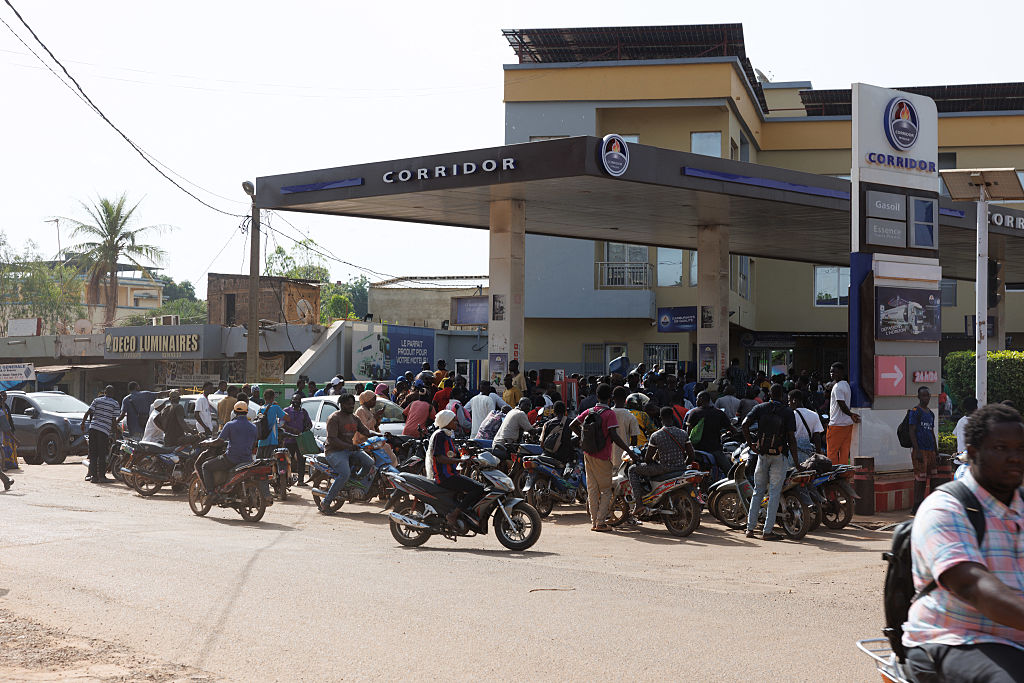Nigerian military sources confirmed to Reuters that the Mali-based terrorist organization Jama’at Nusrat al-Islam wal-Muslimin (JNIM) killed one Nigerian Soldier during an attack in western Kwara State, which borders Benin.
The attack was JNIM’s first in Nigeria and the latest example of Sahelian terror groups extending their reach across West Africa.
In the Sahel, JNIM competes fiercely with Islamic State Sahel Province (ISSP) for control of territory across Burkina Faso, Mali and Niger, with a special focus on the Liptako-Gourma region where the three countries meet.
ISSP has grown from about 400 fighters in 2018 to more than 3,000 today. In June, members of ISSP killed 70 worshippers at a mosque in Manda, Niger.
Sahel attacks have jumped from fewer than 1,900 in 2019 to more than 5,500 in 2024. So far this year, there have been 3,800 attacks as of mid-October, according to Agence France-Presse (AFP).
An AFP breakdown of research by the Armed Conflict Locator and Event Data project (ACLED) shows that JNIM, ISSP and other Sahelian terror groups have killed more than 77,000 people in more than 28,000 attacks since 2019.
“The security crisis in the Sahel is complex, and there are no quick fixes,” Charlie Werb, an analyst with Aldebaran Threat Consultants, told AFP.
JNIM, an affiliate of al-Qaida, has become the most prominent group now fighting security forces in the Sahel and northern Nigeria.
In recent months, JNIM has blockaded fuel shipments coming into landlocked Mali from coastal countries to the south and west, attacking fuel trucks and burning some. It has encircled Burkina Faso’s capital, Ouagadougou, and, with ISSP, controls about 50% of the country outside the capital. It recently launched attacks in northern Niger along the border with Algeria and as far south as Benin in what analyst Jacob Zenn of the Jamestown Foundation recently described as “showing ambitions to control a trans-Sahelian corridor that mirrors historical Islamic polities.”
The recent attack in Assamakka, Niger, killed six Nigerien Soldiers. JNIM claimed it had taken control of the border post there.
JNIM’s growing control of Malian territory leads some analysts to believe the group soon may lay siege to the capital, Bamako, to bring down the ruling junta. After that, the future of Mali and the broader Sahel is unclear.
“One of the key questions regarding JNIM’s future is whether the group will seek to not just take over territory but govern it,” Zenn wrote.
At this point, JNIM has shown little interest in governing the territory it has cut off from regional authorities in Burkina Faso, Mali and Niger.
“JNIM may determine it does not have the resources to govern, nor is it willing to risk harming its image by governing poorly,” Zenn wrote.
The military juntas ruling Burkina Faso, Mali and Niger all overthrew democratically elected governments based on their inability to rein in terror groups. However, the violence and deaths increased since the countries expelled French and American counterterrorism forces and brought in Russian mercenaries from the Wagner Group, now known as Africa Corps.
Experts say heavy-handed attacks by Sahelian rulers and mercenaries in regions plagued by terrorists have done nothing to address the root causes of instability.
Analysts with the Counter Extremism Project recently warned that a JNIM victory in Mali could make it the first country ruled by al-Qaida.
Edmund Fitton-Brown, a senior fellow at the Foundation for the Defense of Democracies, believes a JNIM victory could result in indirect rule instead.
“JNIM will eventually insist on a government more to their liking in Bamako, even if they don’t take control themselves and accept something softer than an al Qaida-affiliated regime,” he told CNN.

